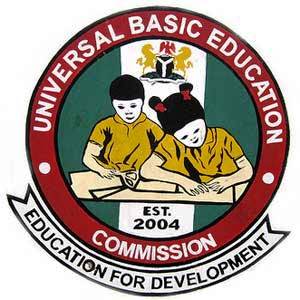UBEC earmarks N2bn for schools upgrade

The Universal Basic Education Commission has flagged off the disbursement of N2.03bn to 1,147 School-Based Management Committees across the 36 states and the Federal Capital Territory.
The funds, released under the SMBC–School Improvement Programme, will support over 15,155 school improvement projects nationwide, including classroom renovations, provision of furniture, WASH facilities, and enhanced security measures to create more conducive learning environments.
The Executive Secretary of the Universal Basic Education Commission, Aisha Garba, flagging off the disbursement on Monday, said each SBMC/school would receive up to N1.8m, thus empowering communities to lead the transformation of their schools.
“A total of N2.035bn to be disbursed to 1,147 school-based management committees across all 36 states and the FCT under the SBMC-SIP.
“These funds will support 15,155 improvement projects, such as classroom renovations to make learning conducive, furniture provision, WASH facilities, and measures to improve security.
“Each SBMC/school will receive up to N1.8m, empowering communities to lead the transformation of their own schools.
“SBMCs will lead these projects, ensuring transparency, accountability, and sustainability, reflecting UBEC’s commitment to decentralised progress,” Garba said.
She added that the UBEC would also disburse N22bn to train 224,000 teachers and education managers across the 36 states and the FCT.
“And that’s not all, through the Teacher Professional Development Programme, we are disbursing over N22bn to train 224,000 teachers and education managers across all 36 states and the FCT.
“Each state is receiving N598m for targeted training in key areas to improve quality education.
“This investment will reach over 56,200 schools and impact more than 16.6 million learners,” the UBEC boss added.
She said the move was to curb the out-of-school children, especially in rural and low-income communities in the country.
The UBEC boss noted that Nigeria was still dealing with 17 million out-of-school children, adding that only nine per cent of children aged seven to 14 in rural areas demonstrated age-appropriate reading skills.
“Our basic education sector has made progress, but serious gaps persist.
“While enrolment rose by 7 percentage points between 2016 and 2021, access to education has not expanded to all.
“About 17 million children remain out of school, especially in rural and low-income communities and only nine per cent of children aged seven to 14 in rural areas demonstrated age-appropriate reading skills.
“These numbers are more than statistics—they are a call to action for urgent, targeted investments in infrastructure, teacher development to expand equitable access to all parts of Nigeria,” Garba added.
She further noted that the government would be unveiling several initiatives following the flag-off, which will have an impact on the development of basic education in the country.





